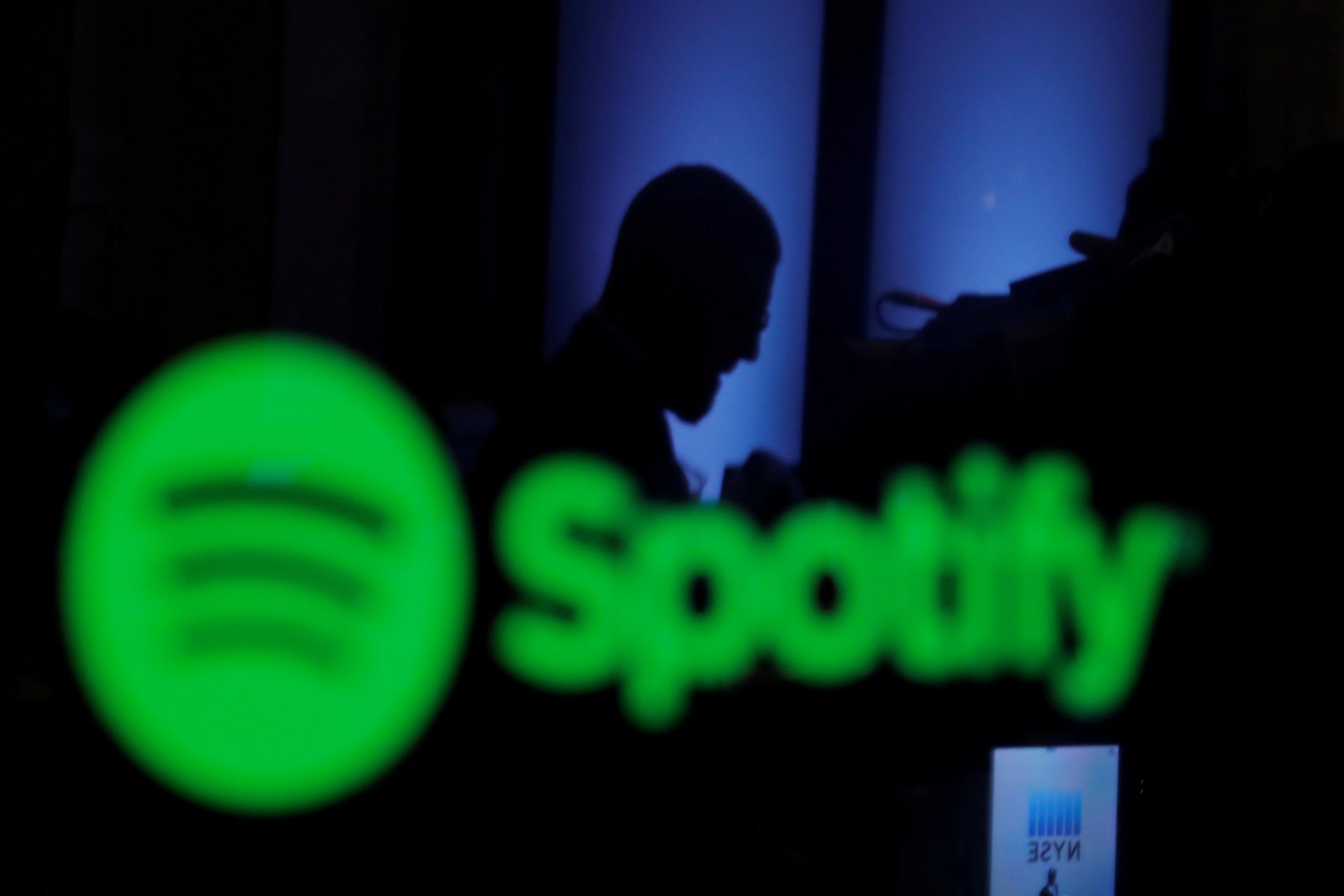Here are the homegrown competitors facing Spotify in Africa
Spotify is expanding to 40 more African countries. The audio streaming service is trying to tap into the growth opportunity presented by the continent, following its initial entry into South Africa, Morocco, Egypt, Algeria, and Tunisia in 2018. In total, Spotify is entering 86 new markets in different parts of the world, to help “ensure that sounds and stories that once remained local can reach a global audience,” the company says.


Spotify is expanding to 40 more African countries. The audio streaming service is trying to tap into the growth opportunity presented by the continent, following its initial entry into South Africa, Morocco, Egypt, Algeria, and Tunisia in 2018. In total, Spotify is entering 86 new markets in different parts of the world, to help “ensure that sounds and stories that once remained local can reach a global audience,” the company says.
Spotify joins a growing list of foreign audio streaming services in Africa, including Apple Music, which also expanded to more countries last year. The continent has opportunities in the availability of cheaper smartphones, expanding internet connectivity, faster internet speeds, an increasing array of connected devices, and an expected population boom. Revenue in music streaming in Africa is expected to grow to $493 million by 2025.
Back in Sept. 2019, researcher Ben Morgan warned that Africa’s markets have specific challenges, and require a tailored approach. With 345 million users, including 155 million subscribers, across 170 markets, Spotify is already the world’s most popular audio streaming subscription service—it remains to be seen whether it can succeed on its own terms in Africa. Apart from established global rivals like Apple Music, Spotify also faces competition from a number of Africa-focused streaming services.
Boomplay
With 75 million users as of July of last year, Boomplay allows users to stream music for free, or pay for a daily, weekly, or monthly plan to save content to play offline, or purchase content to download. It has a catalog of more than 47 million songs and videos.
Boomplay is partly owned by Transsion Holdings, a Chinese company that is Africa’s number one mobile phone supplier, and comes pre-installed on its phones. The app is also available for download on non-Transsion brands.
It was launched in Nigeria in 2015 and now also has local operations in Ghana, Kenya, and Tanzania.
Mdundo
Mdundo is a free music streaming and downloading service that started in Kenya in 2013.
Created as an alternative to illegal downloading of music, which is widespread in the continent, it allows people to download songs, rather than stream them. Every song has a 5-10 second ad at the start. Through this model, the company made $300,000 in ad sales in 2019. Last year, it raised $6.4 million through an IPO on the Nasdaq First North Growth Market in Denmark.
Mdundo had 7 million users in Dec. 2020. The service, which has music by 80,000 artists and a catalog of 1.5 million songs, is available throughout the continent—its main markets are Kenya, Tanzania, Uganda, Nigeria, and Ghana.
MusicTime
MusicTime, a streaming app by MTN Group, one of Africa’s largest mobile network operators by subscribers, was launched in South Africa in 2018. It is a pay-as-you-go service; users purchase a weekly package of two or five hours of music, and the internet data cost for listening to the music is included in the package.
MusicTime has a catalog of more than 40 million songs, with a focus on African music. It is currently also available in Nigeria, Ghana, the Republic of Congo, Cameroon, Eswatini, and Zambia.
Others services
More African audio streaming and downloading services include: Nigeria’s uduX and Spinlet, Kenya’s Smubu, South Africa’s Mziiki and Senegal’s MusikBi.
Some of the other foreign players in the continent are: Audiomack, Deezer, YouTube Music, and Tidal.
Sign up to the Quartz Africa Weekly Brief here for news and analysis on African business, tech, and innovation in your inbox.